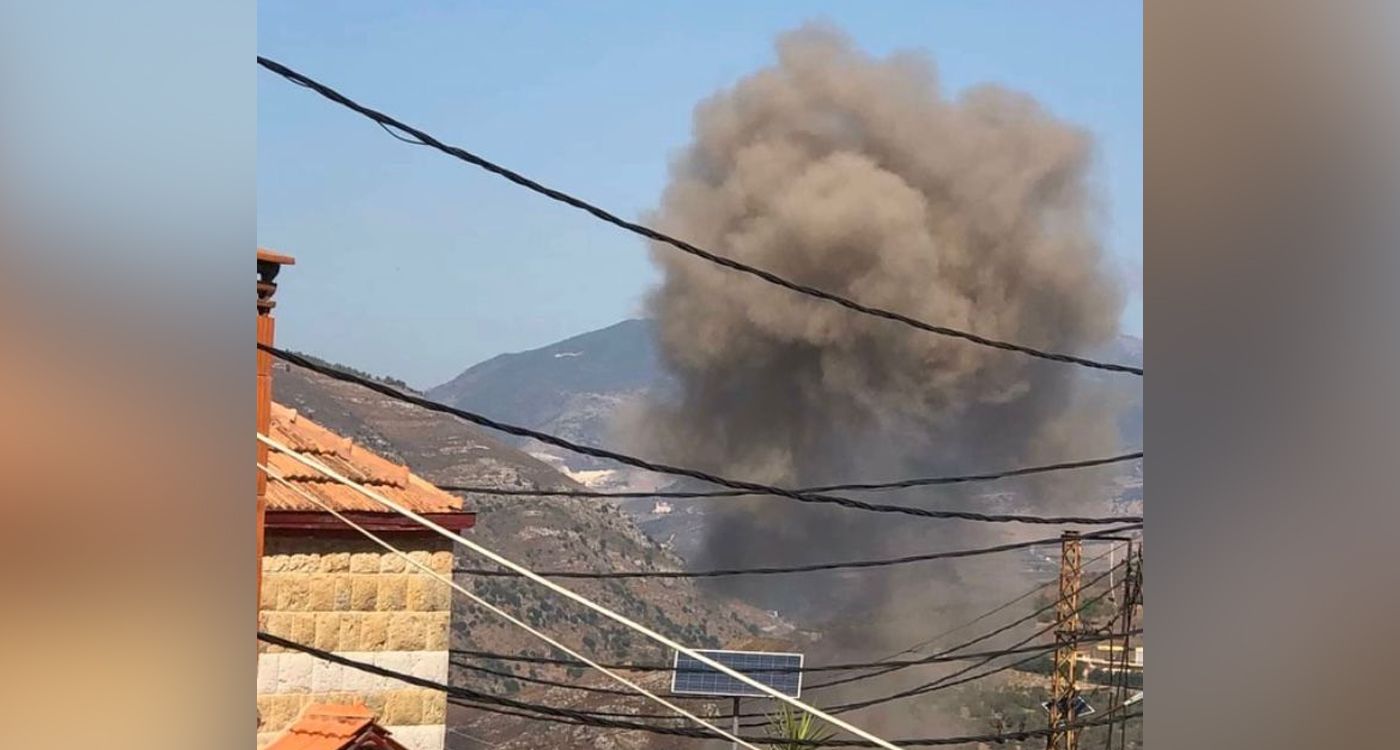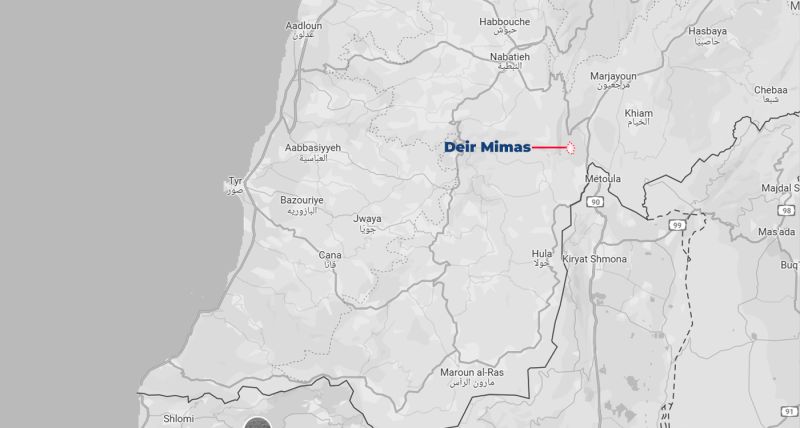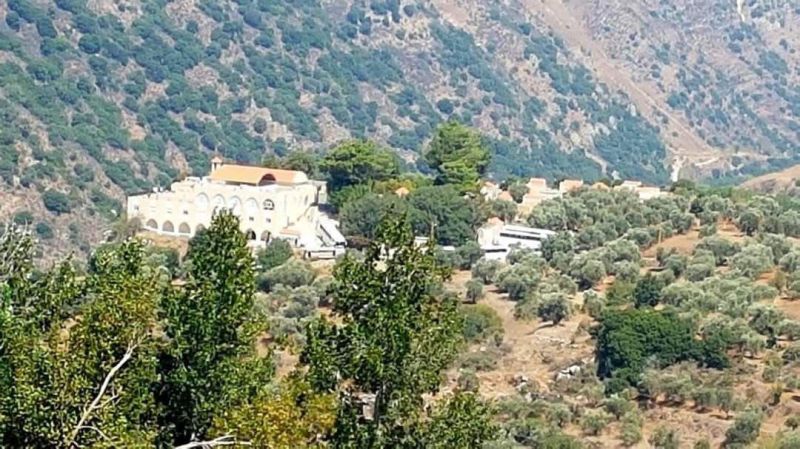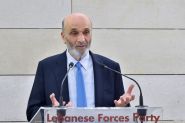
Every day, Maha lights a candle to the Virgin Mary. On November 22, the 81st anniversary of Independence Day, she performed the same ritual—but this time, with a heavier heart. The Israeli army had just taken up positions in her village, Deir Mimas, located about seven kilometers from the southern border in the Marjayoun district. The village is now cut off from Nabatiyeh after the establishment of an Israeli checkpoint at the Khardali Bridge.
Out of the nearly 4,000 residents of this Christian village, only about 20 remain. “I won’t leave because this candle cannot go out—it must stay lit, for Our Lady will bring peace. We pray every day for this war to end soon,” says Maha, a woman in her seventies who remains with her son, a soldier in the Lebanese army.
Since Thursday, residents have been confined to their homes. That night, an Israeli drone flew over the village, broadcasting a chilling message urging people to “stay indoors to avoid danger.” This escalated the already intense fear and uncertainty gripping those in the border area.
“It was terrifying,” recounts a member of the Abu Jamra family. “The loudspeaker’s warning echoed through the empty streets: Stay inside, don’t go out or you’ll endanger your life. It felt dehumanizing. We don’t know if it’s a genuine threat or psychological warfare, but it’s a constant reminder that we’re being watched. We feel isolated, abandoned—living under missiles and not knowing what comes next,” he adds. Yet despite the fear, he has no intention of leaving, even though he could.
That same night, Father Pierre Raï, the priest of the neighboring village of Qlayaa, sent an urgent message to residents, advising them to stay indoors for fear of an imminent Israeli attack. His warning caused panic in both villages, though hope stubbornly endures.
“We are preparing for the worst but hoping for a quick resolution and a ceasefire. The tension is unbearable. We’re under siege, desperately searching for answers about our survival and safety,” comments Inaya, a resident of Qlayaa.
A Climate of Terror
Unlike Qlayaa, the Israeli army has entered Deir Mimas. The village, with its indescribable charm, features traditional Lebanese stone houses with red-tiled roofs nestled amid sprawling olive groves. The Israeli army likely chose this location for its strategic significance.
Perched on a hilltop, Deir Mimas overlooks the Litani River and Beaufort Castle to the West, where Israeli forces recently stationed themselves, and Mount Hermon to the East.

Since the war began, the village has been caught in the crossfire between Hezbollah and the Israeli army, despite having no Hezbollah presence. Hezbollah fires rockets from distant positions, while Israeli forces maintain a constant barrage. The exchanges are so relentless that even the cemetery has been struck.
The threat of full-scale war looms large as Israeli forces expand their incursions and increase evacuation warnings.
Thursday evening, Israeli tanks made their deepest push yet, reaching the outskirts of the Deir Mema Monastery in Deir Mimas.
“A large number of tanks positioned themselves on the hill near the monastery and next to the Morkos station at a key village intersection,” explains Jean, a resident.
Israeli forces advanced on the ground while conducting heavy airstrikes, carrying out around 13 raids that day alone.
Residents remain cautious, but worsening restrictions on water, electricity and medical supplies exacerbate their plight. “We’ve learned to live with the sound of bombs and to support each other. But on some days, like today, hope feels fragile,” says Sana.
In a small home at the heart of the village, Martha, eight months pregnant, battles fear and hope. Confined to her house, she worries about the lack of water and medical care.
“I’m expecting my second child. We’ve been ordered to stay indoors. Living with this uncertainty is unbearable. I often wake up in the middle of the night to the sound of bombings, fearing for my life and my baby’s. I’m trying to stay calm despite the anxiety, hoping I can bring my child into a world of peace,” she says, her voice trembling.
Why do they stay? Like many others in nearby villages where Hezbollah has no presence, the residents of Deir Mimas refuse to abandon their land. “This is our home, our olive trees, our life—and we will stay here,” says Fadi resolutely.
For Layla, Deir Mimas is filled with memories. “I’ve lived here all my life, as did my parents and grandparents. They faced hardships, and so must we. We are resilient people, not victims,” she declares, despite the precariousness of their situation.
The Israeli checkpoint at the Khardali Bridge near the Kfar Kila-Qlayaa-Bourj al-Malouk junction has left several villages isolated. “We’re trapped in a conflict that is not ours, a war imposed on us. Today, we’re prisoners on our own land,” laments Abu Fouad.




Comments